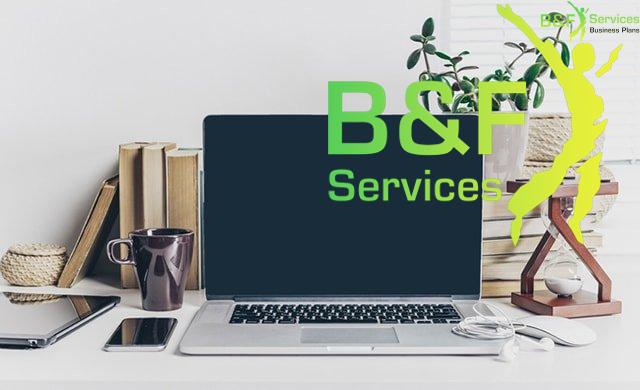

It is a truth universally acknowledged that the UK public loves convenience.
After all, why navigate a crowded shopping centre when you can order things online? Why hurry home to watch your favourite TV show when you can stream it later? Why cook when you can order a takeaway with a few taps of your phone?
Having grown used to accessing key services whenever and wherever they want using tablets and smartphones, consumers have developed a big appetite for on-demand digital services. But this much isn’t new.
What we’re predicting, as we head into 2019, is the next phase of our obsession with digital convenience: the rise of 100%-online experts who provide specialist expertise that, until now, we wouldn’t have dreamt of turning to on the internet.
Yes, from doctors’ appointments to personal training to buying property, 2019 will see traditionally face-to-face services begin their evolution towards the digital realm.
The innovative entrepreneurs who lead this movement will assist customers flexibly and remotely – through AI, phone calls, online chats and video links – instead of ever physically meeting with them. Convenience and flexibility will reign, for online coaching entrepreneurs and their clients.
And there’ll be a number of ways to go about it. Entrepreneurs might become freelance experts, providing independent advice and coaching as and when needed. Or, they could build specialist consultancy platforms that perform a particular service online.
In any case, 2019 is set to present plenty of opportunities to get creative, and use your individual expertise and interests to capitalise on the world’s attachment to its smart devices…
Why online consultancy is a good business idea
So, why might a start-up or freelancer who offers advice, guidance, coaching and more on a 100% online basis achieve business success?
First of all, there’s ample evidence to suggest that online communication, in today’s society, is a welcome replacement for face-to-face interactions.
In fact, a report from global market research firm Mintel has revealed that 33% (a third) of US consumers would rather interact with people online than in person – a telling result that suggests plenty of people would be happy to ask an expert online.
Not to mention that the flexibility afforded by online consultancy acts as a compelling draw to consumers. Whereas the brick-and-mortar establishments we frequent have strict opening hours and require to-ing and fro-ing, online services can be accessed from anywhere – namely, the comfort of home – and at more convenient times.
As Mintel says, “flexibility is the name of the game”. When it comes to the way we structure our lives, flexibility is a new buzzword – not least due to the country’s growing enthusiasm for flexible working.
Mintel explains: “With a growing remote workforce, consumers’ daily lives are fluid and brands have to adapt to lifestyles no longer defined by nine-to-five work cultures.”
As a result, it’s fair to say that online-only experts are capturing the public’s imagination. The phenomenon of digital doctors’ services has been covered by outlets such as CNN and The Guardian, while in July 2018 the latter reported that 7,000 brick-and-mortar estate agents were at risk of closure thanks, in part, to competition from digital agents.
Meanwhile, the term ‘online personal trainer’ has been entered into Google over 3,000 times in the UK over the last month alone – suggesting a demand for an online fitness coach.
And from your perspective, an additional tick for starting an online expertise business is that it’s likely to come with minimal start-up costs. After all, you won’t have to pay for a professional premises in which to meet with clients if you’re simply video chatting them from your sofa.
Not to mention that freelance consulting could be the perfect side hustle, enabling you to keep your day job while you get established – meaning far less risk.
Online coaching and consultancy business ideas
When looking to become an online expert, it stands to reason that you’ll want to consider concepts that you already have expertise in. Are you qualified in finance? Are you an experienced beautician? Do you have medical training? Are you a musician?
Alternatively, is there something that you’re really keen to learn about and innovate? Can you think of a complicated traditional process that could be made slicker online?
Remember, consumers are putting more and more trust into online services, meaning the time is right to explore things that people wouldn’t have previously considered doing digitally.
Disruptive online platform amicable, for example, helps couples to get divorced online (yes, you read that right) by using interactive tools, speaking remotely with expert divorce coaches, and completing paperwork digitally.
Similarly, PawSquad provides 24-seven access to online vets who advise on pets’ health via a live chat or a video consultation, while Push Doctor enables online doctors appointments to take place via video link.
As Mintel suggests, entrepreneurs may well find success by innovating the way in which people manage their responsibilities and undertake pressing daily jobs: “More and more consumers are commonly relying on technology to manage their everyday ‘adult’ tasks.
“Those looking to capitalise on this will serve as a resource for these hurdles by making responsibilities feel more manageable and even fun (sometimes).”
However, you might forgo the idea of helping people to meet their responsibilities, and instead teach a hobby online. Depending on your expertise, you could coach anything: music, dance, arts and crafts, sports training, cookery, hair and beauty… the possibilities are truly endless.
Australian app ProCoach, for instance, ask users to record and send videos of their sports techniques. Within 48 hours, users receive a personalised video evaluation from a professional athlete or coach, which helps them to improve.
What’s key is that you provide an incentive for customers to come to you. How is your digital service simpler, easier and able to compete with its more traditional, face-to-face counterpart?
For example, online estate agents such as emoov and Settled carry out the property selling and buying process online – promising to not only minimise the stress of moving home, but also to save customers money by eschewing agents fees and commission.
For advice and assistance in relation to discussing the topic covered above or queries concerning an ongoing investment, fundraise, writing a business plan or information about starting or growing your business; please contact our team in London on 0203 637 6365 or via our enquiry form.








